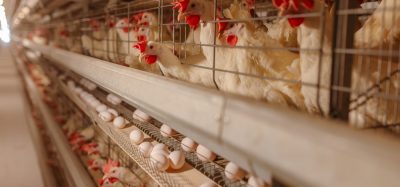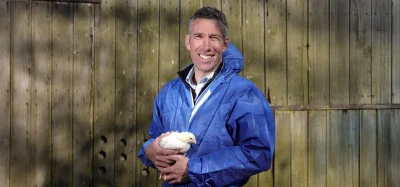Nestlé turns to satellites to monitor global palm oil supply chains
- Like
- Digg
- Del
- Tumblr
- VKontakte
- Buffer
- Love This
- Odnoklassniki
- Meneame
- Blogger
- Amazon
- Yahoo Mail
- Gmail
- AOL
- Newsvine
- HackerNews
- Evernote
- MySpace
- Mail.ru
- Viadeo
- Line
- Comments
- Yummly
- SMS
- Viber
- Telegram
- Subscribe
- Skype
- Facebook Messenger
- Kakao
- LiveJournal
- Yammer
- Edgar
- Fintel
- Mix
- Instapaper
- Copy Link
Posted: 17 September 2018 | New Food | No comments yet
Global food giant Nestlé S.A. last week announced that it has ramped up its efforts towards reaching the company’s 2020 No Deforestation commitment by becoming the first global food company to implement Starling, a satellite-based service, to monitor 100 per cent of its global palm oil supply chains.


Global food giant Nestlé S.A. last week announced that it has ramped up its efforts towards reaching the company’s 2020 No Deforestation commitment by becoming the first global food company to implement Starling, a satellite-based service, to monitor 100 per cent of its global palm oil supply chains. Starling was developed by Airbus and The Forest Trust (TFT) as a global verification system evidencing that no deforestation is taking place throughout the supply chain.
Said Magdi Batato, Executive Vice President, Head of Operations, Nestlé S.A, “Nestlé has always been committed to source the raw materials we need to make our products in a responsible manner. In 2010, we made a No Deforestation commitment stating that all our products globally will not be associated with deforestation by 2020.”
“In order to accelerate this journey, we have worked with Airbus and The Forest Trust since mid-2016 to embark on a pilot project over the Perak landscape in Malaysia. Starling satellite monitoring is a game changer to achieve transparency in our supply chain and we are pleased to extend this collaboration to cover 100 per cent of Nestlé’s global palm oil supply chains by the end of the year. We will also extend this program to cover our pulp and paper supply chains next year as well as soya at a later stage,” he added.
Starling uses cutting-edge technology combining high-resolution radar and optical satellite imagery to provide unbiased year-round monitoring of land cover changes and forest cover disturbances. Data collected along with its analytics enable companies to manage risks and perform field intervention strategies to drive changes.
In June of this year, The Roundtable on Sustainable Palm Oil (RSPO) suspended Nestle S.A’s membership, citing problems with the company submitting progress reports and an unpaid overdue membership fee. Less than a month later, however, Nestlé S.A. was reinstated, following submission by the company of a of a time-bound action plan to achieve 100 per cent RSPO certified sustainable palm oil by 2023.








